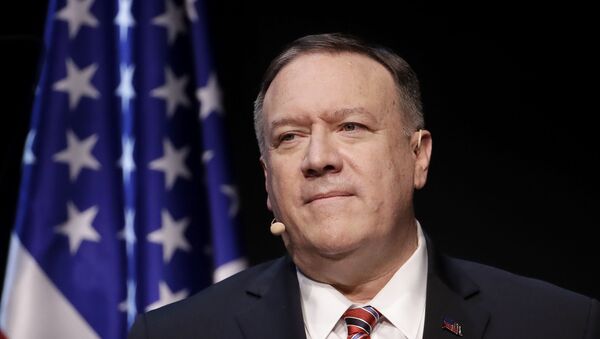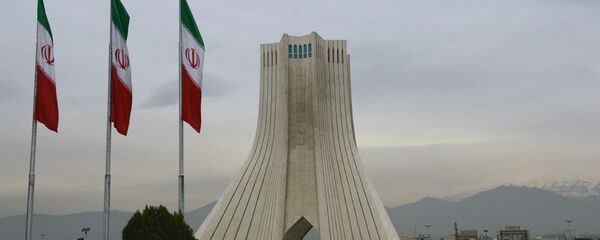US Secretary of State Mike Pompeo has once again claimed in a Twitter exchange with Senator Elizabeth Warren that the US retains the power to extend the ban on conventional arms sales to Iran under UN Security Council Resolution 2231, despite abandoning the Iran nuclear deal, to which it is linked, in 2018.
.@SenWarren, you should review the law again — our rights under UNSCR 2231 are separate from the JCPOA. But I’ll put you down for Chinese arms sales to Iran on October 18. Which weapons is it okay with you if they send? A couple of divisions of VT-4 tanks good?
— Secretary Pompeo (@SecPompeo) April 30, 2020
He also ignored Warren's remark that according to the resolution, the US, as well as other parties to the deal, can only resolve disputes and file complaints about a party's non-compliance through the mechanisms of the Joint Comprehensive Plan of Action (JCPOA, also known as Iran nuclear deal). In her tweet, Warren argued that by abandoning the JCPOA and thereby depriving the US of the right to file complaints, Trump and his administration had made the country "less safe".
Actually, paragraph 10 of UNSCR 2231 encourages the US to resolve disputes *through the Iran nuclear deal* – the same one you withdrew from, limiting our options and making us less safe. Nice try, @SecPompeo.
— Elizabeth Warren (@SenWarren) April 30, 2020
But can I put you down for reentering the #IranDeal? https://t.co/n7xjoMj90c
The secretary of state, however, disagreed with the senator, insisting that ditching the nuclear deal was the right thing to do, and claimed that it didn't impair US security in any way.
Nope. America and Israel are safer outside the Iran deal, which was a failed effort to appease terrorists. But thanks for clarifying you want the arms embargo lifted this October. https://t.co/Dy9uc2dgwS
— Secretary Pompeo (@SecPompeo) May 1, 2020
US' Loose Interpretations of Resolution 2231
Paragraph 10 of UN Security Council Resolution 2231 encourages the parties to the JCPOA to resolve "any issues arising" in regards to the treaty's implementation via the agreement’s mechanisms. A separate part of the resolution devoted to resolving disputes between the sides also stresses that any disagreements and claims must be cleared through a Joint Commission comprised of the participants of the Iran nuclear deal.
The US, however, withdrew from the agreement, which was tightly linked to Resolution 2231, in 2018, with President Trump claiming that it was "flawed" at its core and that the US should never have signed it. Now that the ban on the sale of conventional weapons to Iran is about to expire in October 2020, Pompeo stated that Washington will go to great length to force an extension of it, arguing that the US' rights under Resolution 2231 are not linked to the JCPOA, which the country left two years ago.
Pompeo recently loosely interpreted Resolution 2231 on another occasion, claiming that Tehran had violated one of its provisions by launching a military satellite into orbit at the end of April. The resolution, however, doesn't ban Iran from launching satellites into space, but calls on the country to refrain from such actions. The provision is not binding and doesn't stipulate sanctions against Iran for ignoring the call.




